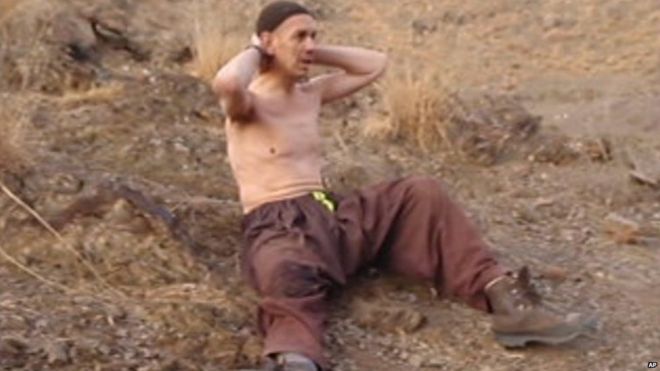Unprivileged Participant in Hostilities in Afghanistan Gets Life Sentence in US Court
The saga of Irek Hamidullin has come to a close, more or less, with a life sentence (plus 30 years) in a Virginia courtroom today. You may recall the name: Hamidullin was once a Russian tank commander, but later became involved with the Afghan Taliban and the Haqqani Network. In 2009, he was involved in an attack on U.S. forces in Afghanistan, and was captured after a shoot out.

Published by The Lawfare Institute
in Cooperation With

The saga of Irek Hamidullin has come to a close, more or less, with a life sentence (plus 30 years) in a Virginia courtroom today. You may recall the name: Hamidullin was once a Russian tank commander, but later became involved with the Afghan Taliban and the Haqqani Network. In 2009, he was involved in an attack on U.S. forces in Afghanistan, and was captured after a shoot out. For a time he was in U.S.-controlled military detention in Afghanistan, part of the final rump of foreign-fighter detainees in U.S. custody as we wound up our detention operations there. As with Iraq previously, shutdown of those detention operations presented significant challenges with respect to the disposition of persons deemed still dangerous (particularly those with American blood on their hands), yet unlikely to be imprisoned for long if turned over to local authorities. Hamidullin was an unusual case where that challenge was resolved by bringing him to the United States for prosecution in a civilian court.
As I noted in a post at the time, this could have served as a model for similar situations elsewhere, or if the prosecution went south it could have the opposite effect. Well, it certainly did not go south. Quite the contrary. None of this is to say, of course, that all such cases will involve a comparable, adequate amount of inculpatory information that will be admissible under the Federal Rules of Evidence. Nonetheless, it's a big victory for the Justice Department, and the Obama administration. I very much doubt, however, that this outcome will have any impact on the larger politics of GTMO closure.


.jpg?sfvrsn=d5e57b75_5)

